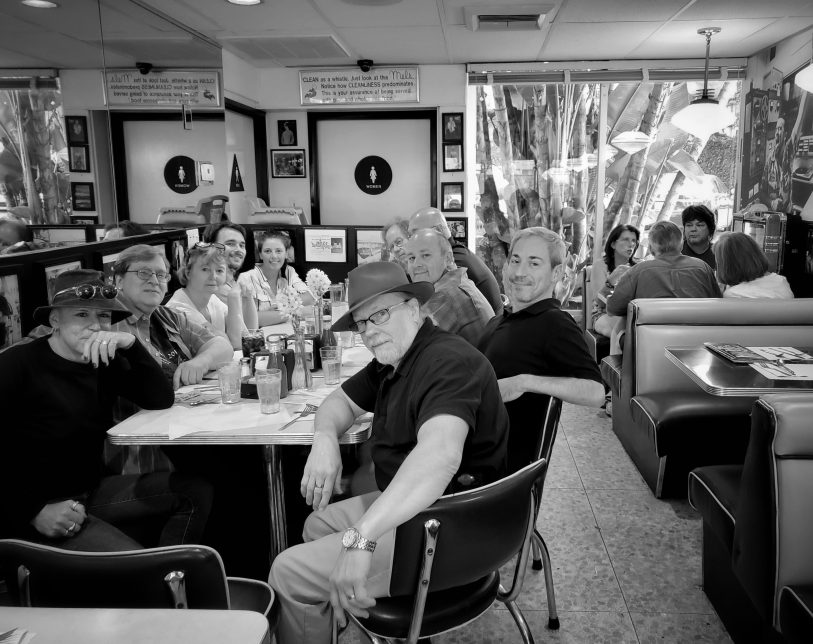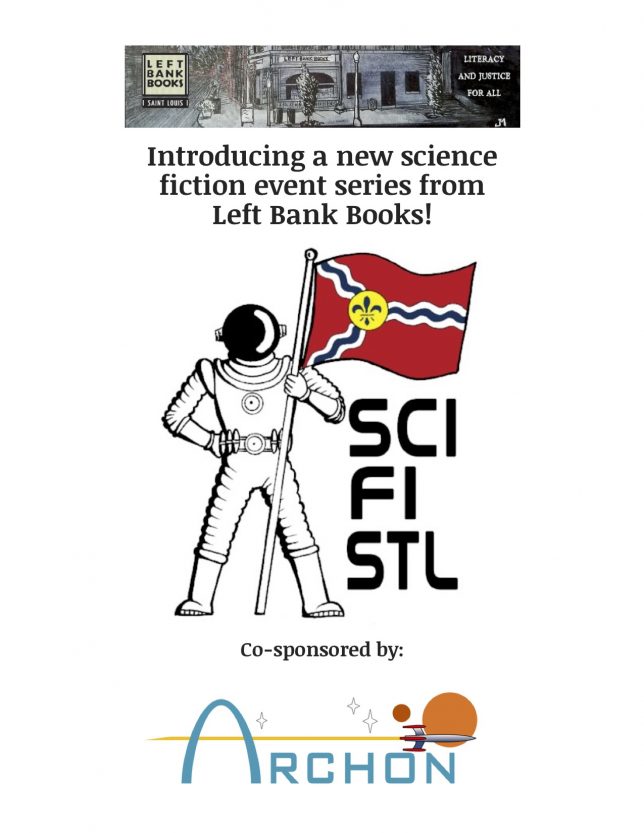I enjoyed a brief conversation yesterday on the subject of writing. The act of it, the discipline, the challenge. The prompt was “writing every day.” Somewhere along the way, we who do this as—well, as more than a hobby, but often less than a profession (even if we have pretensions in that direction)—receive that bit of advice: write every day. Even if it’s only a sentence.
Partly, this is a matter of discipline. Partly exercise, like working out. Mainly, though, it’s a combination of establishing a habit, so it becomes automatic, and creating a space in one’s psyche where this thing happens.
I know, that’s imprecise. Everyone has such a space, though. It’s where we store all the processes and associated tools for a task we do all the time but is in some ways apart from who we consciously are. We label it the Creative Process, among other things, but have no real handle on what exactly it is.
Where it comes from, though, is less ethereal. It comes from engagement. It comes from doing. It comes from repeatedly demanding of ourselves that something cool be produced and put into the world. As a kid hunched over a blank piece of paper, pencils and crayons at hand, trying to draw, maybe even make a comic, scrawling sometimes because there’s a shape you want to make but it just won’t appear. You don’t have the skills, not yet, just the urge (and the urgency) and some time. (Time, that intangible we have so much of at five that when we’re thirty-five has become naggingly scarce and at sixty-five is more precious than anything but love.) Some, maybe most, give up when it proves too difficult. They can’t control the pencil, they haven’t got a “knack” for it (which is a way of saying it may be a skill requiring far more time and attention than they’re willing to commit), or they can’t quite visualize what exactly they want to create. Others yield to distractions—games, media, friends who want to monopolize even that bit of time, chores, or the mine field of living a less than nurturing life—and some never feel the urge in the first place. Other things attract their obsessive attention.
When we’re children, we don’t recognize “practice” as an intentional effort to improve. We practice walking, but it doesn’t feel like that. We practice talking. We practice social intercourse. We practice reading. If we’re enjoying it, having fun, or simply doing something that seems like the thing to do, it doesn’t register as practice. Not until we consciously acknowledge that we’re trying to achieve a specific goal. Once walking and running become either sport or turn into dancing and we realize there are skill levels we need to achieve, then we understand the idea of practice.
It’s odd, then, to realize that so many people assume that when it comes to writing, expectations are different. The idea of practice comes as a shock. After all, they’ve been reading since they can remember and they’ve had to write papers through school (presumably) and all this, if done at all diligently, no longer seems like work. (Reading, especially. We don’t usually think about practice when it comes to reading, it’s something we just do, like breathing. At least some of us. And for those for whom it does not come easily, it seems never to occur to many of them that they could practice it and get better. It’s something we either do or get by without.) You see this surprise in people who attempt to write—a novel, a memoir, a history—without ever having undergone any of the preparatory work to learn how, and are then told “You don’t know to write.”
There is a point when all of us who want to be writers suffer this realization. Some less than others—there really does seem to be a “natural” facility in place for certain people, but it’s an illusion; dig deep enough you will likely find long periods when writing as practice was going on, either in journals and diaries or personal essays—but no one is born with a “gift” that allows us to produce masterful work at first attempt. We have to learn. We have to practice.
And carving out a regular space in which to do that is essential. Hence the “write every day” dictum. You do it till it becomes a habit. You get to a point where you don’t feel quite right if you don’t.
But then, once established, you practice.
When I announced my desire to become a photographer (at about age 15 or 16) my father bought me a lab, I acquired a decent camera, and then took it everywhere. What dad then did suggests he understood this concept of practice even as it applied to art: he bought me a case of film (about 250 rolls of film at that time) and told me to blaze away. When I worked my way through all that film, I knew something about photography beyond the mechanics.
Almost none of those pictures was worth a damn as art.
Ansel Adams once allowed that an artist is good in direct proportion to how much he or she has thrown away.
Learning to write is a long process where, having carved out the time and space to do so, you write. A million, two million words, which you then pretty much discard.
You can be taught grammar. You can be taught formatting (though, from some examples I’ve seen, this seems to be one of the hardest lessons to learn). You can learn many things having to do with craft (limiting adjectives, using an active voice, eliminating said-bookisms, point of view).
You cannot be taught the art, that is finding what it is you want to say and honing it to where it actually emerges from the words. This is the thing you bring to the endeavor that is yours. It cannot come from outside.
But you have to practice until it emerges.
A million, two million, three million words. The muscles ache but build, the synapses interconnect, the hidden pathways become clearer.
It can’t be taught because what I’m talking about is personal. You can be guided. It can’t become something other people might want to read in complete isolation. You write, someone reads, hands it back puzzled. Questions. Try this. Better? No, that’s not what I’m trying to say.
A million, two million…
Observation. Most visual art is observation. Look closer. Stop being overwhelmed by the distractions, the colors, the shifting shapes, the preconceptions. We see what we expect to see most of the time. Learn to filter. The artist extracts from the expected what it actually there to be seen. (I often heard from people looking at my photographs “Damn, I would never have thought to take a picture of that.” Which usually meant they would never have seen that. And even then, it was not so much the thing but the way it is presented, so that it reveals. “But what are we revealing in writing that requires that much attention?” Everything that is important. “But how can I tell?” Look closer. Write more.)
Start by making that space.
I do not write every day. Not anymore. I try, I intend to, and when I don’t I feel uneasy. But I used to, sometimes necessitating being something of an ass to the people around me. (You can tell when people don’t understand the idea of practice when it comes to writing by how many will interrupt a writer with the assumption that they aren’t actually doing anything.) Over years, the words took on heft, weight, concrete meanings. The configurations did things to readers. The descriptions became windows or doorways rather than blueprints. It happens gradually, sometimes glacially, and before you get there it can be profoundly frustrating.
“I read this and that and tried to write that way and it still doesn’t come out the way I want it to.”
Practice.
The other benefit of that million or two of discarded and buried wordage is that obscure goal of Finding Your Own Voice. Like most aphorisms about writing, it’s a tantalizing idea that says too much and too little. Those dispensing it know what it means, but those needing wisdom might not get it.
Your Own Voice, on the page, is not the voice with which you speak in everyday exchanges. Like everything else on the page, it is entirely artificial. That does not mean fake, which too often is what we hear when discussing art. We place a premium on “honesty” and “sincerity” as if that’s all we require, unconsciously (and sometimes ostentatiously) rejecting artifice as somehow impure, when in reality learning the craft and honing our art—becoming good artificers—is the only way to reach the levels of truth we seek to convey. Finding your own voice is a consequence of learning how to say what we feel and observe, and that requires skills which are learned, practiced, and built over time.
Frank Lloyd Wright joked once, when he was in his eighties, that he had designed so many buildings that he could just “shake them out of my sleeve.” He meant, of course, that he had acquired a level of craft and skill which channeled his visions as a matter of course. He had become, over decades of work, so adept that when he imagined something he could just sit down and do the technical end almost by second-nature.
The first step in reaching that level is making that space wherein the practice occurs.
We practice all the time. (John Lennon said, speaking of their early years playing clubs, “We played so regularly we never needed to practice, we were practicing on stage.”)
Writing is one of those endeavors that we seem to require inspiration to do it. The thing is, when we teach our subconscious that it can have its own time and space in which to do this, eventually it will sync up, and when our Writing Time rolls around, our muse shows up. This is also a result of practice. We train our imagination and our subconscious to cooperate with our discipline.
Not always. We have wordless days. But over time, with diligence, those days become the exception.
One last thing before I conclude. Don’t believe that everything you write, even when you reach the point of reliably putting words down every day, is supposed to be epic. Editing is the other part of this process and that is a different process and a different set of expectations. And sometimes you throw out even good sentences, because they will not serve. The surest way to block yourself is to have unreasonable expectations. If you think after that million or two million words you should be producing Great Work every time you sit down to write, you will cripple yourself.
Just write.
Practice.



